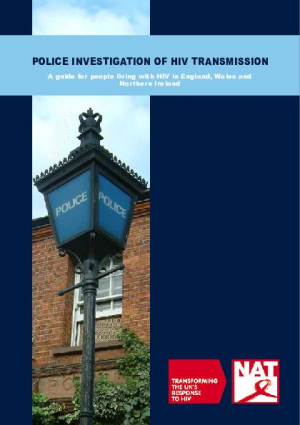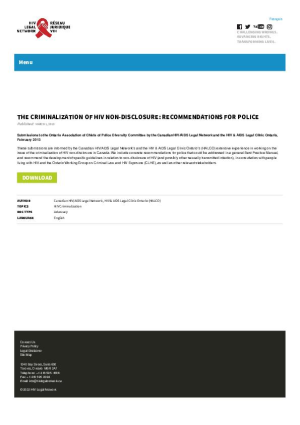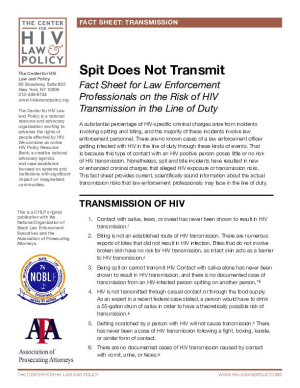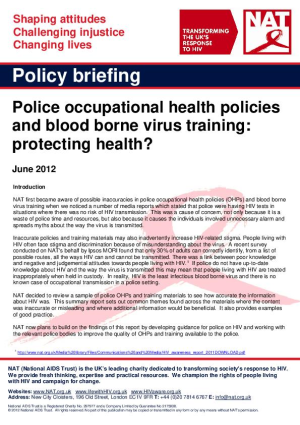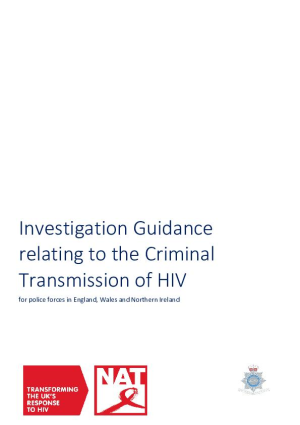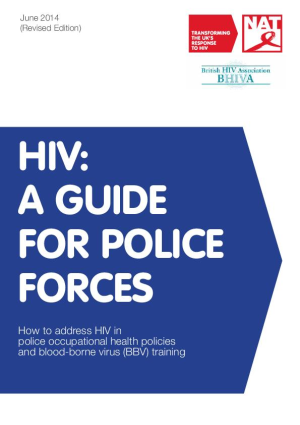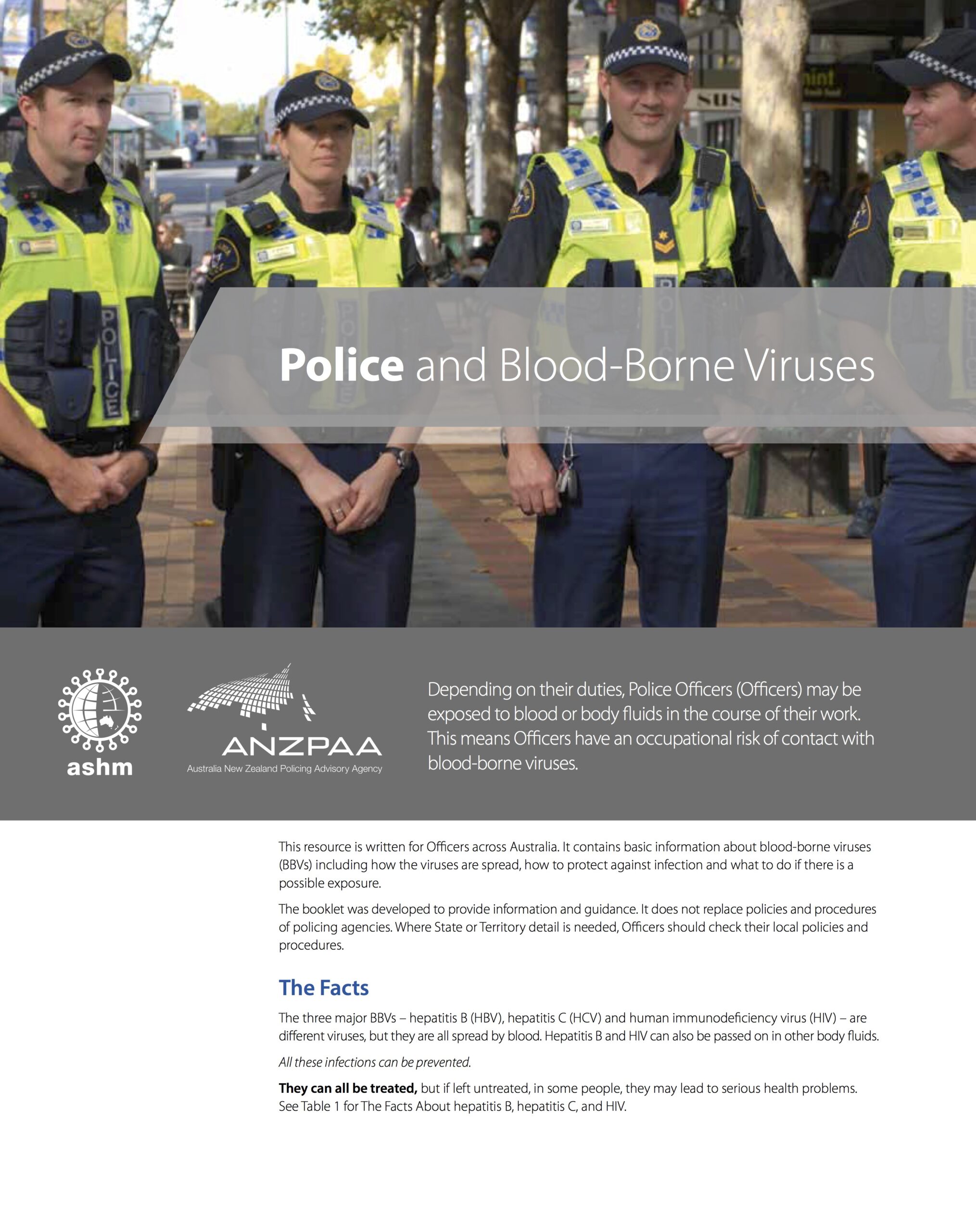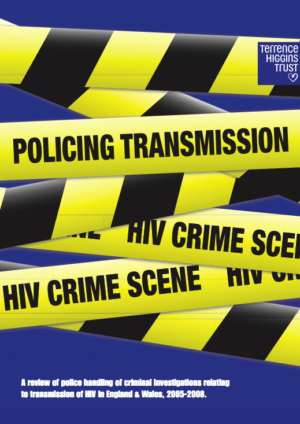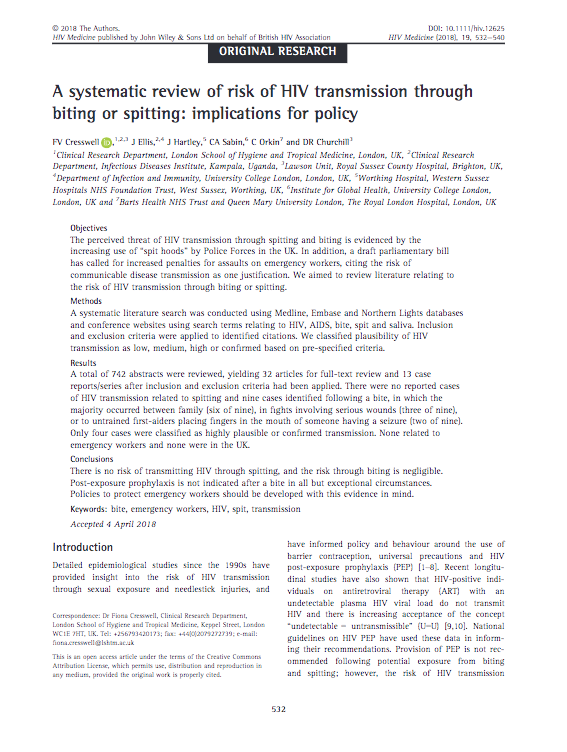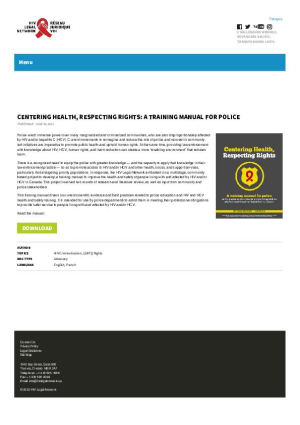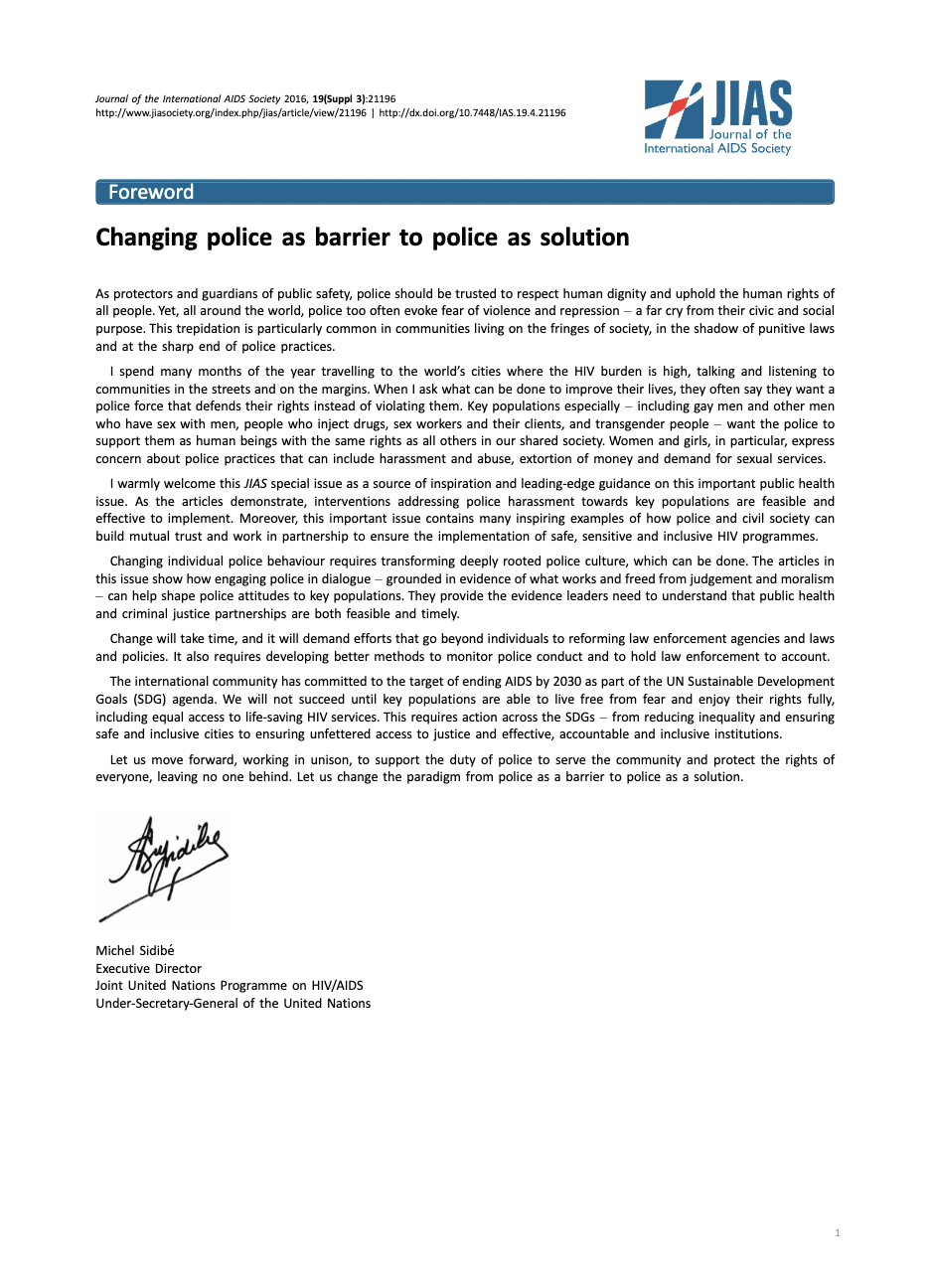Includes guidance for community members explaining ‘Investigation Guidance relating to the Criminal Transmission of HIV’ for police forces in England, Wales and Northern Ireland.
Legal education
Resources for law enforcement
The criminalization of HIV non-disclosure: Recommendations for police
Outlines the law and includes concrete recommendations for police that could be addressed in a general Best Practice Manual. Recommends the development of specific guidelines in relation to non-disclosure of HIV (and possibly other sexually transmitted infection) in consultation community stakeholders.
Spit Does Not Transmit: A Fact Sheet for Law Enforcement Personnel, The Center for HIV Law and Policy, the National Organization of Black Law Enforcement Executives and the Association of Prosecuting Attorneys (2013)
This 2013 factsheet produced by the Center for HIV Law and Policy, the National Organization of Black Law Enforcement Executives and the Association of Prosecuting Attorneys provides current factual information about the HIV transmission risks law enforcement professionals may face in the line of duty (aiming to address the frequent overstating of risk). States there is no known case of a law enforcement officer being infected in the line of duty through spitting or biting.
Police occupational health policies and blood borne virus training: protecting health?
Review of materials from 15 police constabularies found police practice was adversely influenced by numerous factual inaccuracies including routes of transmission, likelihood of infection, harms of infection, and need to segregate people in custody. Recommends review of police training materials and new training about HIV.
Investigation Guidance relating to the Criminal Transmission of HIV for police forces in England, Wales and Northern Ireland
Sets out how prosecutors should deal with cases where there is an allegation that the suspect/defendant has passed an infection to the complainant during the course of consensual sexual activity. States the criminality of this offending lies in the mens rea, so relevant offences will be difficult to prove to the requisite high standard, to satisfy the evidential stage of the Code test and in the court itself. Also warns of other sensitivities: the relationship between the criminal law and consensual sexual behaviour is delicate.
HIV: A Guide for Police Forces. How to address HIV in police occupational health policies and blood-borne training, UK.
Includes information about how HIV is transmitted, what to do if exposed to HIV, how to respond to someone with HIV, and information about criminal prosecution for HIV transmission. Also has an easy-to-use check-list to ensure blood borne virus training and occupational health policies are fit for purpose and up-to-date. Endorsed by the British HIV Association.
Police and Blood-Borne Viruses
Contains information about blood-borne viruses including how they are spread, how to protect against infection and what to do if there is a possible exposure. Written to provide information and guidance, it does not supersede policies and procedures of policing agencies.
Policing Transmission
A review of police handling of criminal investigations relating to transmission of HIV in England and Wales, 2005-2008. The report was used as evidence to argue for both prosecutorial and police guidance. To get a sense of its findings and impact see also the aidsmap.com coverage of the launch of the report held in the UK House of Commons in January 2009.
- Alternative links
- Aidsmap.com report of launch
A systematic review of risk of HIV transmission through biting or spitting: implications for policy
A systematic literature search was conducted using Medline, Embase and Northern Lights databases and conference websites. Results showed that there was no risk of transmitting HIV through spitting, and the risk through biting was negligible. Post‐exposure prophylaxis was not indicated after a bite in all but exceptional circumstances. Policies to protect emergency workers should be developed with this evidence in mind.
- Alternative links
- Español (Traducción automática), Français (Traduction automatisée)
Centering Health, Respecting Rights: A Training Manual for Police
This training manual draws on current scientific evidence and best practices related to police education and HIV and HCV health and safety training. It is intended for use by police departments to assist them in meeting their professional obligations to provide safer service to people living with and affected by HIV and/or HCV.
Police, Law Enforcement and HIV
JIAS special issue containing examples of how police and civil society can build mutual trust and work in partnership to ensure the implementation of safe, sensitive and inclusive HIV programmes.

